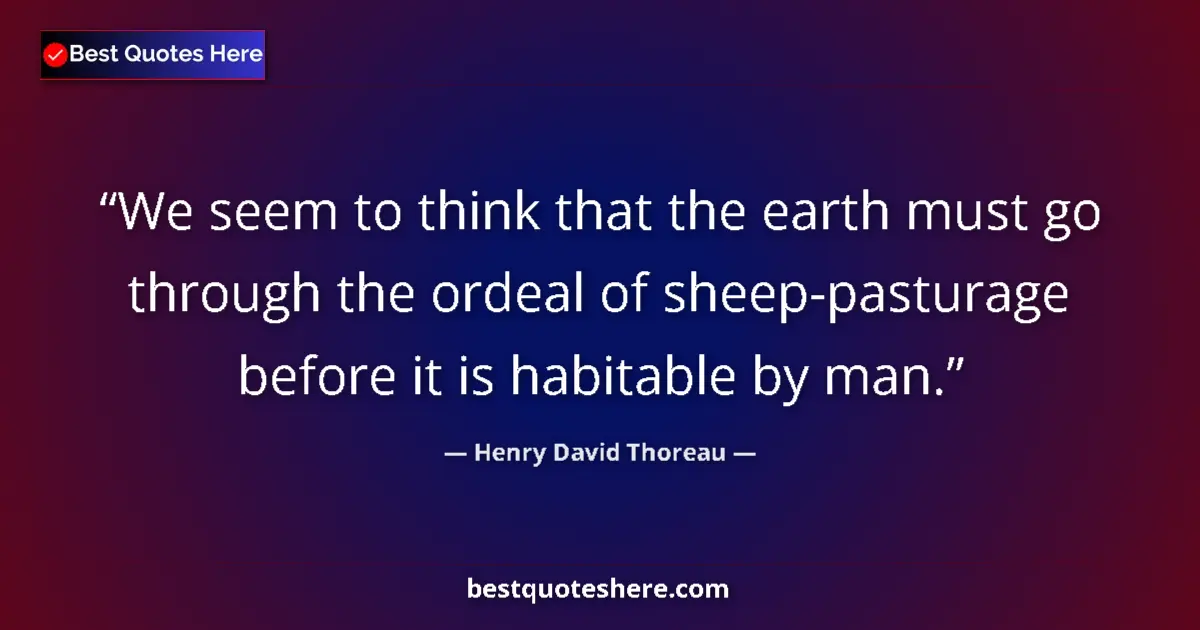"We seem to think that the earth..." - Quote by Henry David Thoreau
We seem to think that the earth must go through the ordeal of sheep-pasturage before it is habitable by man.

More by Henry David Thoreau
“We are ever dying to one world and being born into another.”
“It is truly enough said that a corporation has no conscience, but a corporation of conscientious men is a corporation with a conscience.”
“It is better to have your head in the clouds, and know where you are... than to breathe the clearer atmosphere below them, and think that you are in paradise.”
More on Nature
“The earth is not a mere fragment of dead history, stratum upon stratum like the leaves of a book, to be studied by geologists and antiquaries chiefly, but living poetry like the leaves of a tree, which precede flowers and fruit ~ not a fossil earth, but a living earth; compared with whose great central life all animal and vegetable life is merely parasitic. Its throes will heave our exuviæ from their graves ... You may melt your metals and cast them into the most beautiful moulds you can; they will never excite me like the forms which this molten earth flows out into.”
“Completely true to nature!' - what a lie: / How could nature ever be constrained into a picture? / The smallest bit of nature is infinite! / And so he paints what he likes about it. / And what does he like? He likes what he can paint!”
“Not the sun or summer alone, but every hour and season yields its tribute of delight.”
More on Human Impact
“The Musketaquid, or Grass-ground River, though probably as old as the Nile or Euphrates, did not begin to have a place in civilized history until the fame of its grassy meadows and fish attracted settlers out of England in 1635, when it received the other but kindred name of CONCORD from the first plantation on its banks, which appears to have commenced in a spirit of peace and harmony. It will be Grass-ground River as long as grass grows and water runs here; it will be Concord River only while men lead peacable lives on its banks.”
“Pines a thousand years old. Every year they must go farther for them: they recede, like beavers and Indians, before the white man.”
“What is the city in which we sit here, but an aggregate of incongruous materials, which have obeyed the will of some man?”